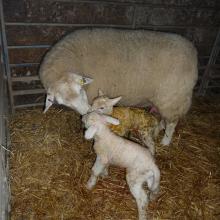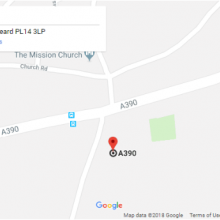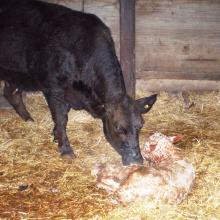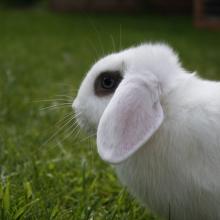You are here
News
Avian Influenza update April 2021
Poultry housing measures have now been lifted but the Avian Influenza Prevention Zone remains in place.
Ensure you follow the enhanced mandatory biosecurity guidance as the risk of avian influenza continues.
For more information visit GOV.UK: https://www.gov.uk/guidance/avian-influenza-bird-flu
COVID - Update 11/02/2021
In line with current Government guidelines as to the control of coronavirus, we are continuing to adapt our working practices.
For patients of all species we continue to request that clients do not enter the building unless this is unavoidable.
FARM

Abortion in Ewes
This year we have been called on to do abortion investigations for a number of our flocks.
It is normal to experience a few problems right at the beginning and towards the end of lambing, and a few abortions are perhaps to be expected. It is however vital to deal with any such losses with great caution, as the potential cause may be an infectious abortion, which puts the rest of the lambing flock at risk. Therefore the minimum action you must take is as follows:
Colostrum is Gold
We are frequently asked for a broad-spectrum medicine to protect calves and lambs from pneumonia, scour, joint ill and all the other pitfalls of early life. The original and still the best, colostrum remains the answer to almost all ills.
February 1st marks the the start of this year's 'Colostrum is Gold' campaign. Their website is full of useful information - click here to read more.
Free BVD Testing
As you will probably have read in the farming press, DEFRA has made funding available for a new National BVD Campaign in England. The Rural Development Programme for England (RDPE) is to provide funding for 1 to 1 on-farm advisory visits by a vet to work with keepers of breeding cattle, to tackle the disease on their farms.
Alabama Rot
Alabama rot is a serious disease affecting dogs in the UK. The exact cause is currently unknown. The disease damages blood vessels in the skin and kidney and can ultimately be fatal to dogs.
The first sign of your dog suffering from Alabama rot is often development of skin ulcers or blisters; most commonly on the legs and paws. Signs of kidney failure can then develop which are shown by inappetence, vomiting and lethargy. If your dog shows any of these signs then contact your vet immediately! There are many other causes of these symptoms too.

Calweton Equine Vets move to Merrymeet, Liskeard, PL14 3LP
We are pleased to be announcing that the equine department will now be based full time at our Merrymeet clinic. This is due to our increasing workload, especially with the specialised onsite treatments we are now performing. We have an Equine Veterinary nurse on site and the vets will now work from here enabling better care of in-patients. The clinic will be open to clients and horses can be seen on site by appointment. This will also enable us to work with visiting specialists in a more controlled environment.

Schmallenberg Virus
Schmallenberg virus (SBV) made headlines in 2011 when this new virus was first identified, and it appears that the disease may be re-emerging. Whilst it can cause milk drop and fever, its most profound effects are on the unborn foetus as it damages the brain and spinal cord and causes deformity of the legs, spine and head.

Rabbits and RHD - New Strain
There are now TWO strains of Rabbit Haemorrhagic Disease in the UK. Also known as Rabbit Calicivirus Disease (RCD) or Viral Haemorrhagic Disease (VHD), RHD is caused by a virus that infects rabbits throughout the UK & Europe. As well as being transmitted by direct contact between rabbits, it can spread through the air when rabbits are in close proximity, or via clothing etc. The disease is extremely serious, causing high fever and internal bleeding.
